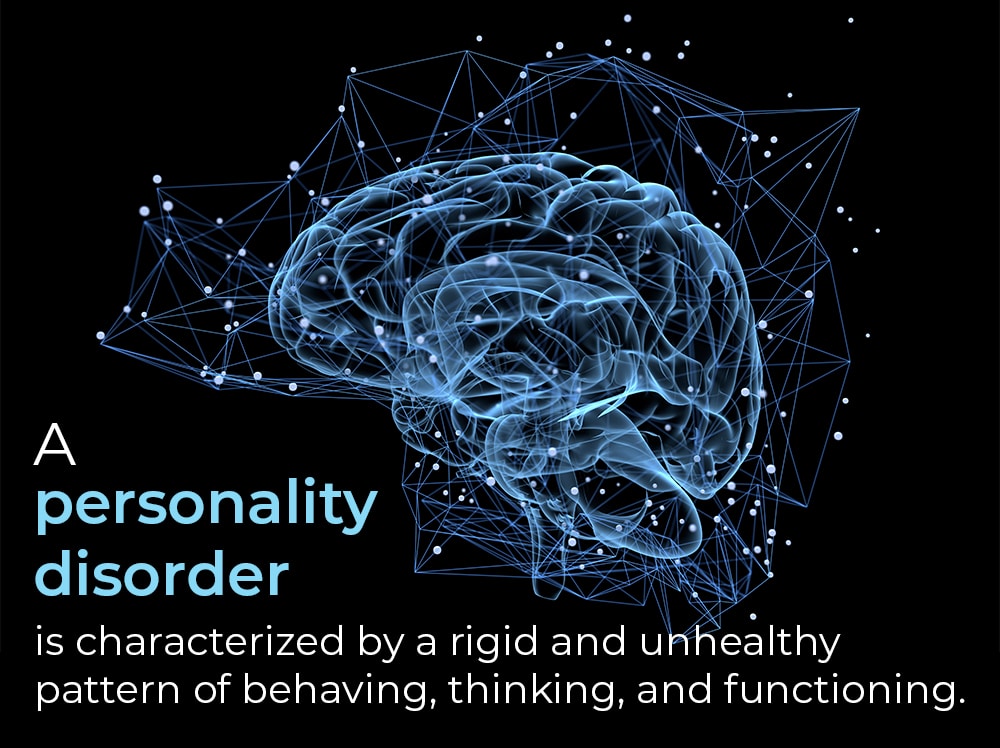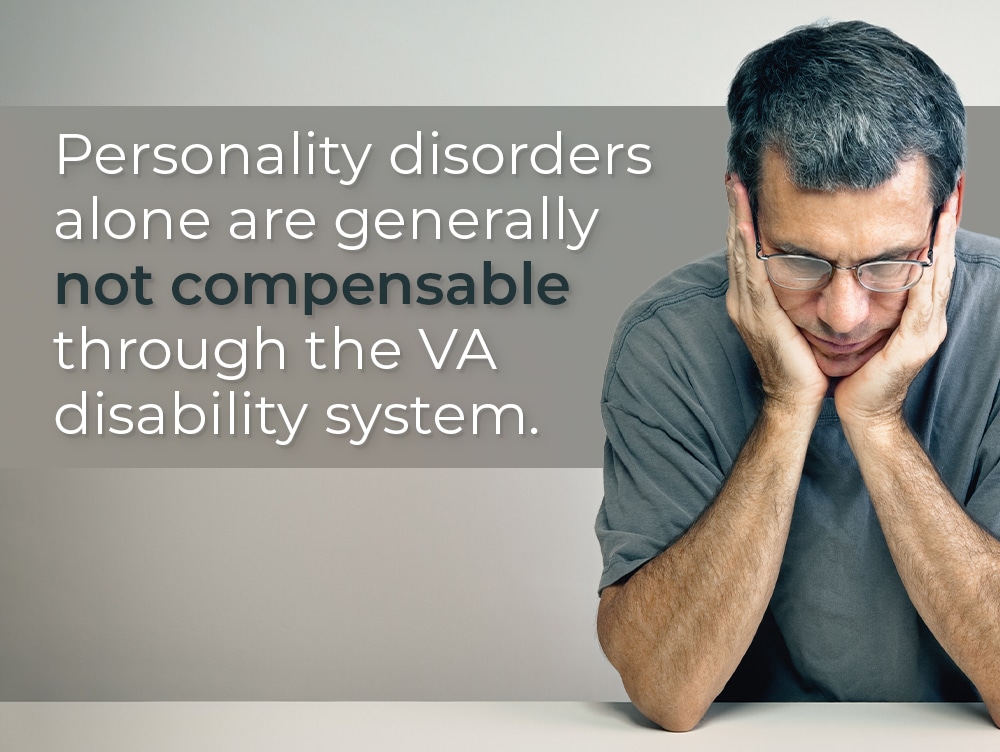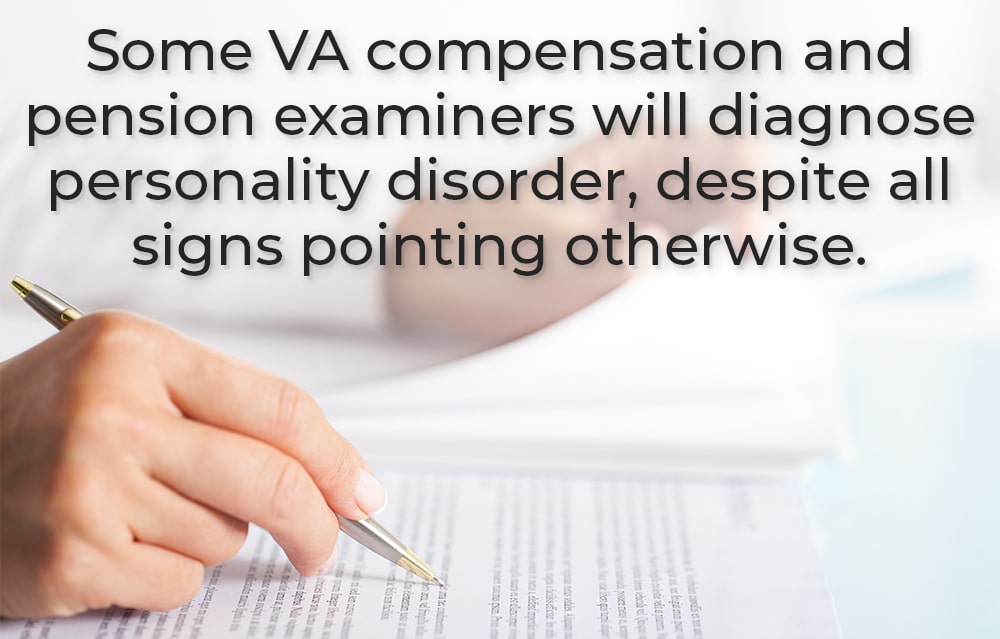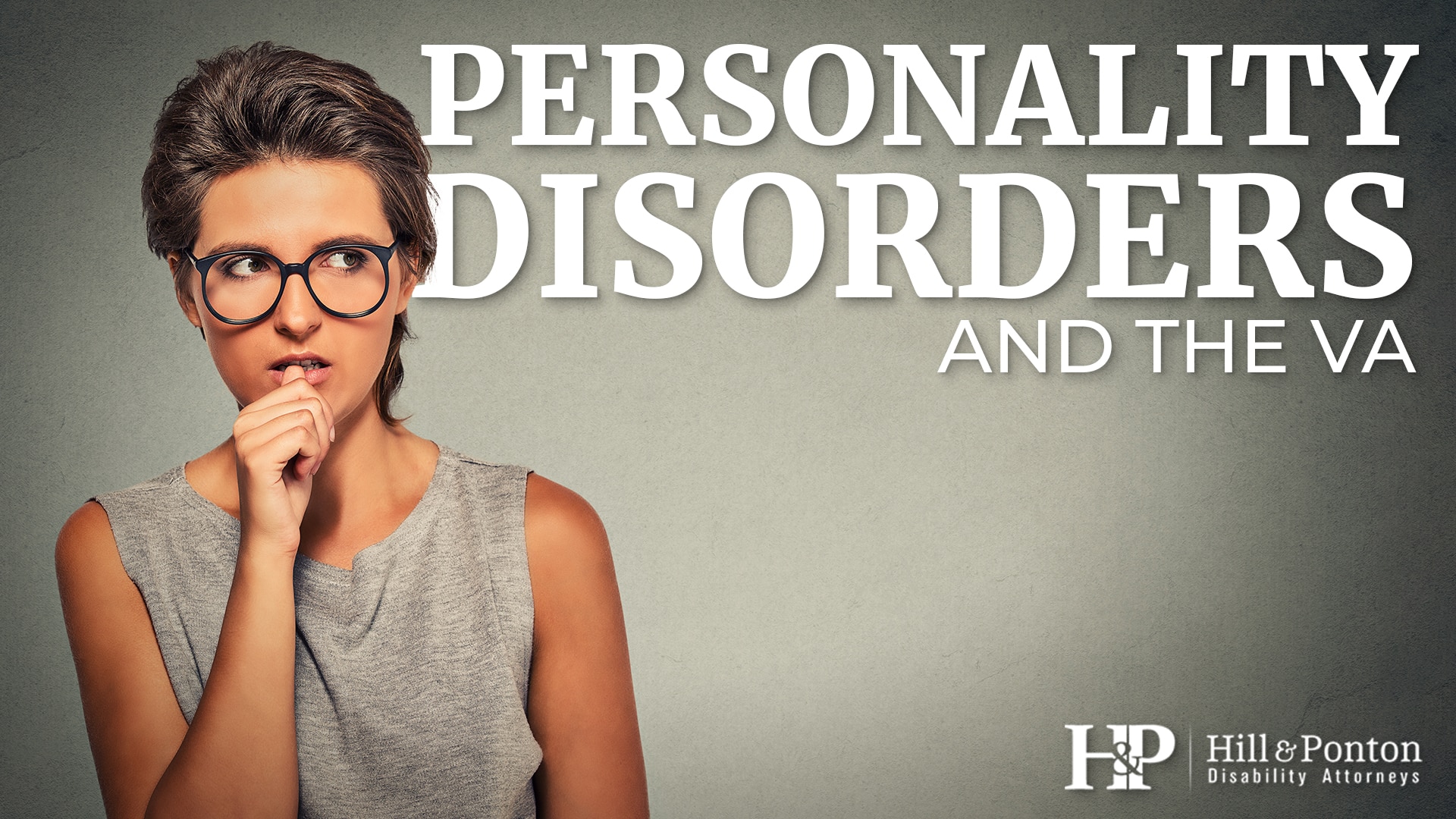Does The VA Rate Personality Disorders?
Veterans living with mental illness are often able to obtain disability benefits through the United States Department of Veterans Affairs. As with other medical conditions, the mental illness needs to have service connection in order to qualify the veteran for benefits. The condition may have been tied to an incident in active duty or general distress during service, for example.
Unfortunately, there are some conditions that the VA does not rate or offer benefits. This group of conditions includes issues like substance abuse and impairments caused by genetic conditions, as well as certain mental health conditions. And personality disorders are among these conditions too.
However, that doesn’t mean you can’t make a disability claim. Medical professionals may misdiagnose veterans with a personality disorder when they actually have a qualifying condition. Here’s what you should know.
What Is a Personality Disorder?
A personality disorder, as defined by the Mayo Clinic, is a type of mental disorder that usually develops in the teen or early adult years, and is characteristic of a rigid and unhealthy pattern of behaving, thinking, and functioning. These conditions are included in the current addition of the Diagnostic and Statistical Manual of Mental Disorders (DSM-5). At first glance, the mere definition of personality disorder doesn’t seem to set off any alarms; however, in the veterans’ arena, personality disorders have been a hot button topic for many years, and for good reason.

There are 10 types of recognized personality disorders: paranoid personality disorder, schizoid personality disorder, schizotypal personality disorder, antisocial personality disorder, borderline personality disorder, histrionic personality, narcissistic personality disorder, avoidant personality disorder, dependent personality disorder and obsessive-compulsive personality disorder. When performing evaluations, mental health practitioners are supposed to evaluate symptoms, and then provide opinions and treatment recommendations for any diagnosed conditions, including personality disorders.
Obstacles to Disability Compensation: Personality Disorders & Misdiagnosis
The problem for many veterans is that far too often, mental health practitioners associated with the military and/or the VA are misdiagnosing posttraumatic stress disorder (PTSD), traumatic brain injury (TBI), and/or other conditions as personality disorder. This is extremely detrimental to veterans because personality disorders alone are generally not compensable through the VA disability system, on the basis of pre-existing condition. There are additional detriments associated with a personality disorder diagnosis. According to a March of 2013 Stars and Stripes article, veterans who are discharged with personality disorder lose other important benefits, such as the ability to receive healthcare through the VA, and they lose the benefit of any veteran hiring priorities.

Unfortunately, all it takes in some cases is for one practitioner to state personality disorder alone, and the long-term fallout begins. In my practice, I have seen veterans diagnosed in-service with immature personality, behavior problems, adjustment problems, and other variations; however, the end result was a personality disorder diagnosis, which ultimately prevented the veteran from obtaining VA disability benefits.
Obtaining VA Benefits
If you are a veteran who suffers from a mental condition and you are seeking VA compensation, whether or not you were diagnosed in service with personality disorder is very important. Veterans should also be aware that some VA compensation and pension examiners will diagnose personality disorder, despite all signs pointing otherwise.

The good news is that veterans who were denied VA compensation in the past due to personality disorder should not give up. It is often beneficial in these situations to obtain an independent medical opinion and/or have the private treating practitioner to evaluate whether or not personality disorder is actually present. In some cases, the veteran may have a mental condition that has a general rating formula, thus qualifying for a disability rating and compensation. It is usually best to get help from an experienced advocate to navigate the process for the long road ahead. The takeaway is that these situations can be certainly complicated; however, there is hope.
Have Questions About Your Disability Claim?
If you’re a former military service member and the VA denied your claim for benefits, the social security and veterans disability attorneys at Hill & Ponton are here to help. We can assess your medical records to determine a path to veterans disability benefits. Our law firm is committed to helping disabled veterans and their family members obtain the benefits they deserve. Contact us today for a free case evaluation.




